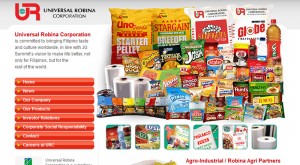URC investing $30M in Myanmar factory
MANILA, Philippines — Universal Robina Corp. is breaking into Myanmar, deemed Southeast Asia’s last frontier, by investing $30 million in a consumer food factory which is expected to be operational by the end of this year.
URC president Lance Gokongwei reported to stockholders at their annual meeting late Monday that URC had obtained an investment license in Myanmar and had commissioned the establishment of its own facility in this new market that will produce biscuits and confectionery products catering to the local market.
URC will own 95 percent of the Myanmar facility while 5 percent will be held by a local partner.
The investment is part of URC’s transformation into a pan-Asean (Association of Southeast Asian Nation) play. Aside from the Philippines, URC has gained footholds in Vietnam, Thailand, Indonesia and Singapore. Outside of Asean, it has operations in China and Hong Kong.
In Vietnam, for instance, Gokongwei reported that URC’s C2 was now the No. 1 ready-to-drink tea brand in this market.
For its fiscal year ending September 2014, URC has set aside $200 million for capital spending. Apart from completing the construction of its new factory in Myammar, URC is spending for a new creamer factory in central Vietnam — its third facility in this market — as well as the biomass power co-generation facility in the Philippines.
URC likewise aims to execute improvements in the selling systems in Indonesia and Thailand, Gokongwei said.
For the international business, which now accounts for about 25 percent of overall business, Gokongwei said the geographic distribution was “almost complete” but the remaining task would be to expand the range of products.
Thailand and Vietnam currently contribute the bulk of URC’s international business, accounting for about 80 percent.
Outside of Asean, URC is nearing the break-even point in China after going into this market in the last 15 to 20 years. The domestic business in China has seen some progress, boosted by exports to other markets and reduced overhead expenses as a percentage of turnover despite the general increase in wages in the mainland, Gokongwei said.
Overall, URC expects its branded consumer foods business to grow sales by the mid to high teens although margin pressure is seen in the second half, Gokongwei said.
URC’s net income for the six-month period ending March 2014, the first half of its fiscal year, amounted to P6.22 billion, which was higher by 14.4 percent than same period last year.
In its quarterly report, URC said growth was slower than operating income due to market valuation loss and decrease in net finance revenue as the company disposed of all bond investments and a significant portion of equity investments last year.
Operating income increased by 42.2 percent year-on-year to amounting to P7 billion for the six-month period. The company said it benefited from the tailwind of relaxed input prices, higher sales volume and increasing scale which resulted in margin expansion of 310 basis points against same period last year.
Six-month net sales grew by 13.5 percent year-on-year to P45.74 billion, led by the growth in the branded consumer goods business here and abroad.
RELATED STORY
